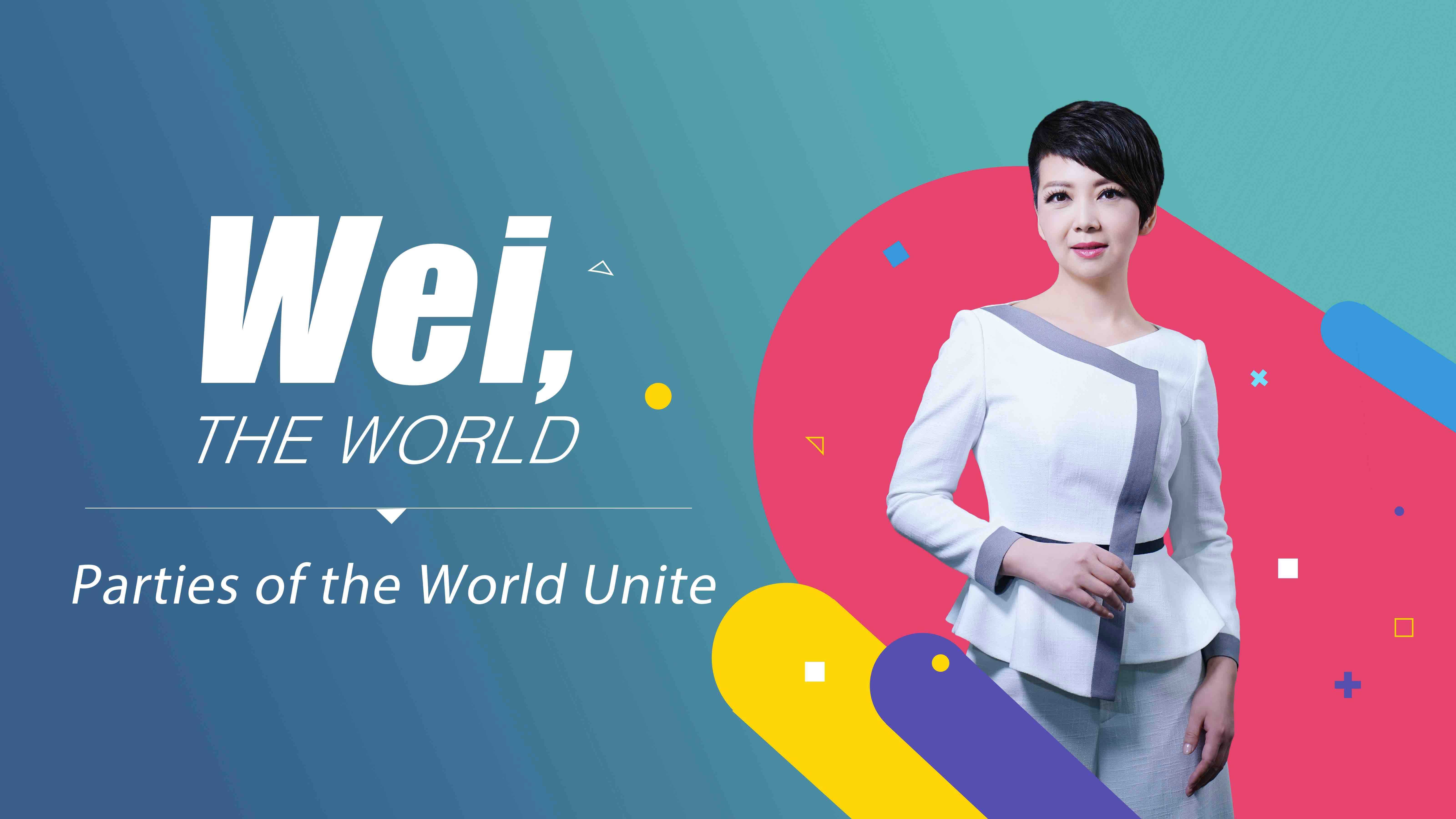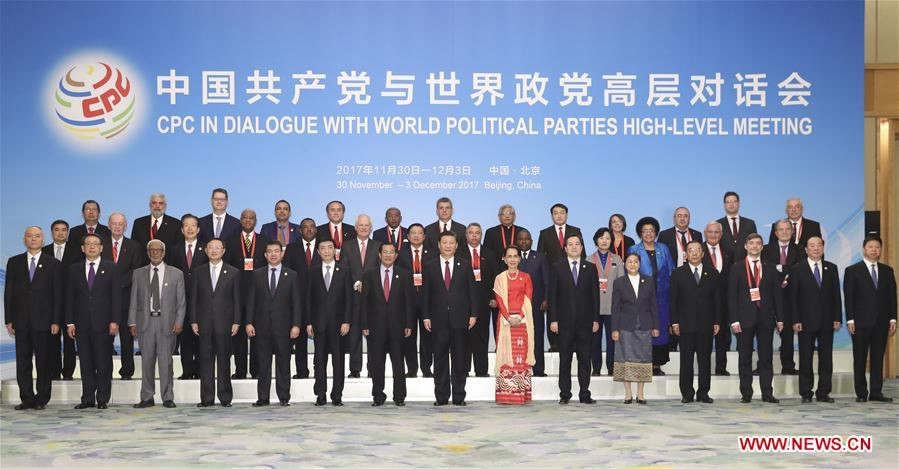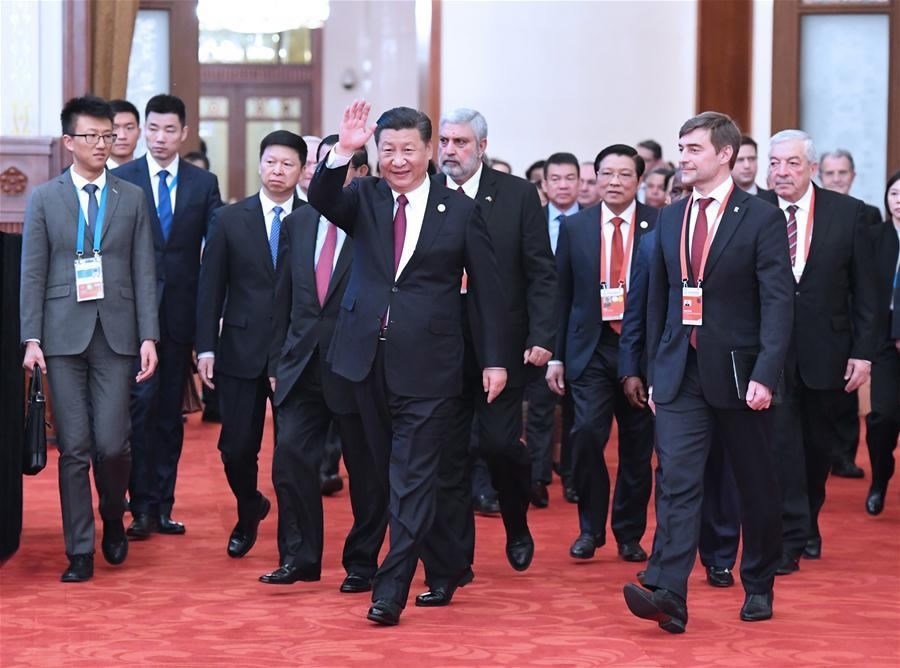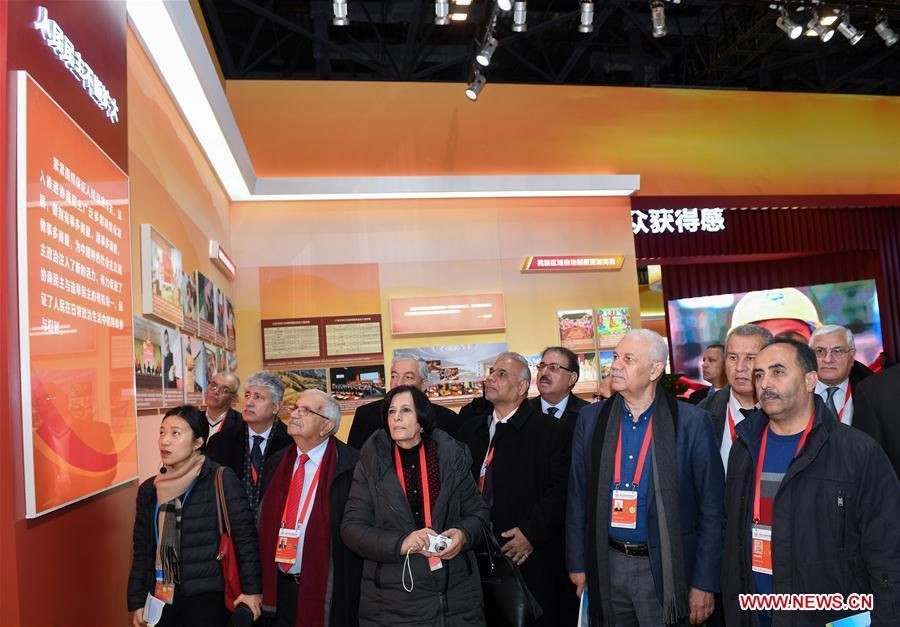
Politics
23:00, 04-Dec-2017
Wei, the World: Political parties of the world unite for a shared future
By CGTN's Tian Wei

It is a national feat that's one for the books. China has managed to drive the engines of economic growth in the last four decades, reinventing a largely agricultural country to one that is a booming industrial powerhouse, and then work on an innovation-driven economy. No wonder counterpart political parties from around the world are curious as to how the Communist Party of China (CPC) did it.
The CPC did share in the first ever World Political Parties Dialogue last week, the answers and valuable lessons learned, with hundreds of parties worldwide.

Xinhua Photo
Xinhua Photo
From the get-go, the CPC made it clear that it neither seeks to import foreign models, nor export the Chinese model. Xi Jinping, General Secretary of the CPC Central Committee, said last Friday: "We will not ask other countries to copy the Chinese practice."
Then what did political parties share with each other? And what could political parties worldwide learn from one another?

Xinhua Photo
Xinhua Photo
For starters, there is a common understanding. The execution of effective governance is key to a country's overall development, growth and prosperity. Political parties make the government work – no matter whether it is a two-party system, multi-party system, or the multiparty cooperation and political consultation system led by the CPC. What makes everything work together is the ability of the political parties to effectively manage politics and eventually bring the country together.
When parties fail to manage conflicts and political chaos, brought on by in-fighting and bickering, the effect on governance can be disastrous. How to prevent political parties from becoming the bane of government is definitely a question worth thinking about. A new platform for party-to-party dialogue, where political parties could seek common ground while shelving differences, based on mutual respect and a willingness to learn from one another, is a great start for this exchange.

Xinhua Photo
Xinhua Photo
For some, the biggest question is whether China is seeking a leadership role in the world. China has, time and again, said "no." But the country certainly has a big agenda on how it can move forward with others. In his speech, Xi said building a community with a shared future for mankind is essential for the prospects and destinies of every nation. Countries need to band together, share the good and the potential, and turn planet Earth, the world we live in, into one big harmonious family.
In a time of increasingly complicated and unprecedented threats, an effective party-to-party mechanism opens up a new way to deal with resurgent economic and security challenges. By communicating and exchanging lessons from each other's experiences, political parties could indeed accomplish the mission of universal security and common prosperity.
(Tian Wei is a former Washington correspondent; now host of "World Insight with Tian Wei," moderating daily live global debates and doing exclusive interviews with the world's most outstanding people from all walks of life. She has been named a Young Global Leader by the World Economic Forum, and is passionate about public service: National Ambassador for Mental Health Advocacy, Special Adviser to the UNDP.)

SITEMAP
Copyright © 2018 CGTN. Beijing ICP prepared NO.16065310-3
Copyright © 2018 CGTN. Beijing ICP prepared NO.16065310-3